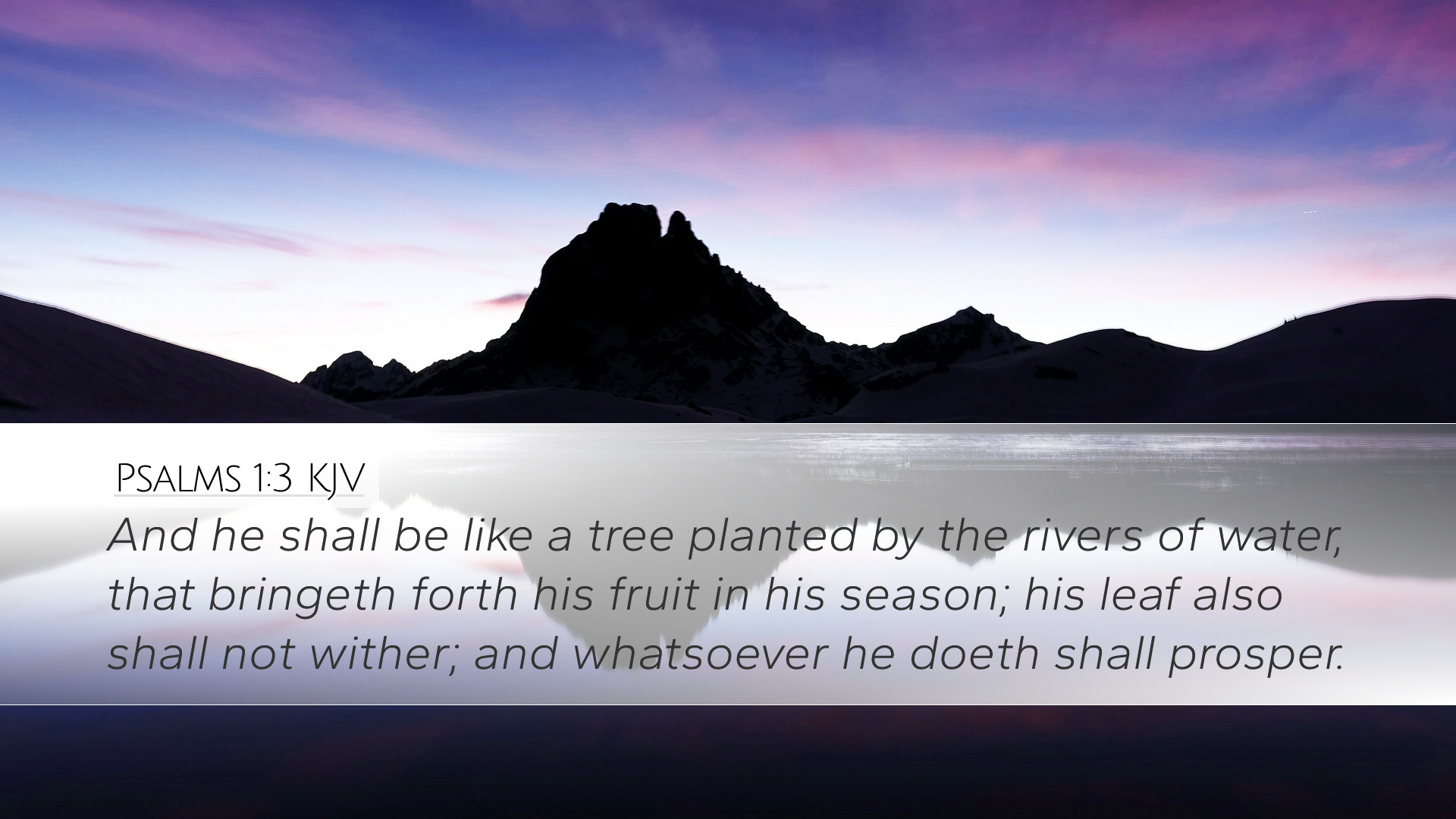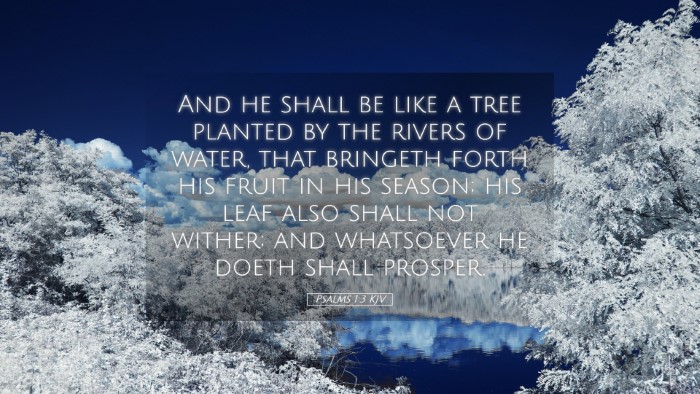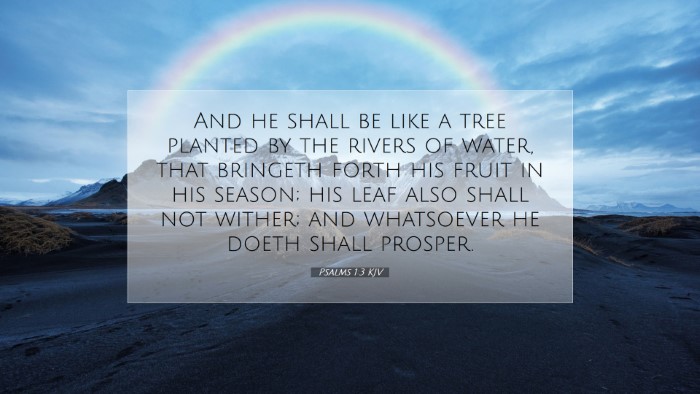Commentary on Psalms 1:3
The verse Psalms 1:3 states:
"And he shall be like a tree planted by the rivers of water, that bringeth forth his fruit in his season; his leaf also shall not wither; and whatsoever he doeth shall prosper."
Overview
This verse is a powerful encapsulation of the blessings that come from living a righteous life. It serves as an analogy, illustrating the stability, nourishment, and productivity of a life rooted in the presence of God and His word. This commentary draws insights from esteemed public domain scholars, offering a comprehensive understanding suitable for pastors, students, theologians, and Bible scholars.
Analysis of Key Components
"And he shall be like a tree"
The metaphor of the tree is multi-faceted. Matthew Henry elucidates that the image signifies strength and stability. Just as a strong tree withstands storms, a righteous individual finds resilience in God. Albert Barnes adds that this tree is not just any tree but one that is planted, suggesting intentionality and purpose in the believer's life, firmly rooted in faith.
"planted by the rivers of water"
This phrase emphasizes the source of nourishment. Adam Clarke notes that the "rivers of water" symbolize divine provision. Just as a tree thrives when placed near a river, a believer flourishes in the presence of God. The imagery reinforces the idea of constant sustenance. Henry further elaborates that these rivers signify the Word of God, which is essential for spiritual growth.
"that bringeth forth his fruit in his season"
The fruitfulness of the tree is indicative of a healthy relationship with God. Barnes highlights that the timing of the fruit as "in his season" alludes to the notion that God has a divine timetable for each believer's life. It teaches patience and reliance on God's timing, rather than frantic efforts to produce without divine support. Henry notes that the fruits can refer to various forms of spiritual virtues such as love, joy, and peace.
"his leaf also shall not wither"
The consistency described in this line reflects the believer's resilience. According to Clarke, this can be understood as the promise of enduring vitality regardless of external circumstances. God grants stability even amidst trials. Henry emphasizes this signifies the security of the believer, who remains vibrant because of his connection to God, contrasting with the fate of the wicked described later in the Psalm.
"and whatsoever he doeth shall prosper"
This concluding promise serves as a testimony to the blessed outcomes resulting from a life aligned with God. Barnes posits that prosperity does not necessarily imply material wealth, but encompasses spiritual well-being and fulfillment. Henry points out that this prosperity is contingent upon actions that are in accordance with God's will, suggesting that true success is rooted in divine approval rather than worldly standards.
Theological Implications
The verse embodies fundamental theological truths about the nature of God’s blessings upon those who dwell in His presence. It aligns with the broader themes of the Psalms regarding the contrast between the righteous and the wicked. The illustrations of the tree serve as a reminder that a life surrendered to God is inherently fruitful and secure.
Contrast with the Wicked
Notably, this verse stands in stark contrast to the way of the ungodly elaborated in the preceding verses. As Henry points out, the flourishing of the righteous serves to illustrate the futility and instability of the path of the wicked, who are like chaff that the wind drives away.
Application for Believers
This rich imagery can be practically applied in the lives of believers in varied contexts:
- Nourishment from the Word: Just as a tree needs water, believers should seek nourishment through regular engagement with scripture.
- Patience in Growth: Recognizing that spiritual maturity occurs in seasons encourages believers to trust in God’s timing.
- Fostering Resilience: In facing adversities, believers are reminded to lean on their roots in faith, drawing strength from God.
- Desiring Fruitfulness: Focusing on producing spiritual fruits as evidence of a thriving Christian life encourages active faith.
Conclusion
Psalms 1:3 provides profound insights into the life of the believer, illustrating deeply rooted faithfulness, divine nourishment, and resultant fruitfulness. As believers reflect on this passage, they are encouraged to evaluate their own lives in alignment with the symbolism of the flourishing tree.
In a world that often feels unstable, this verse offers hope and assurance that through God’s sustenance, they can thrive despite challenges. The combined wisdom of the commentaries of Henry, Barnes, and Clarke enriches the understanding of this verse, making it a pivotal focus for teaching and reflection within Christian communities.


